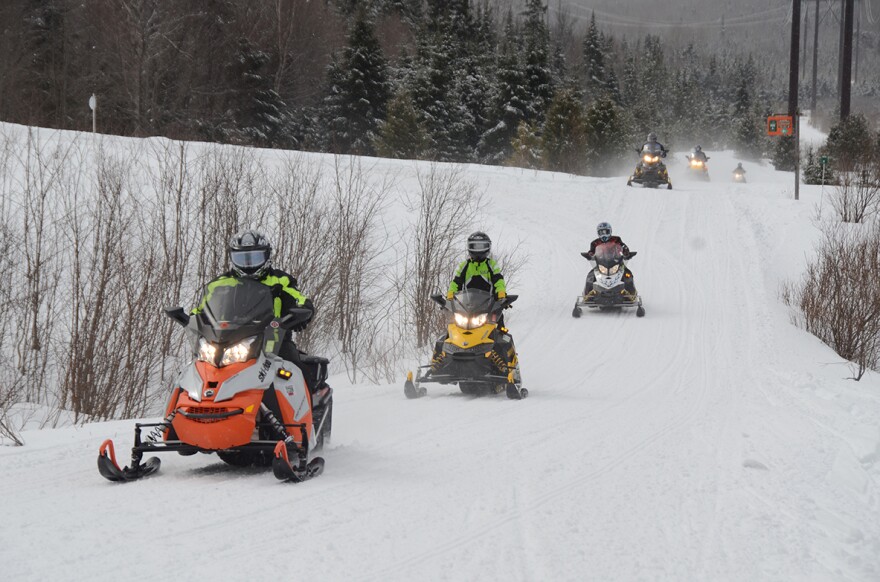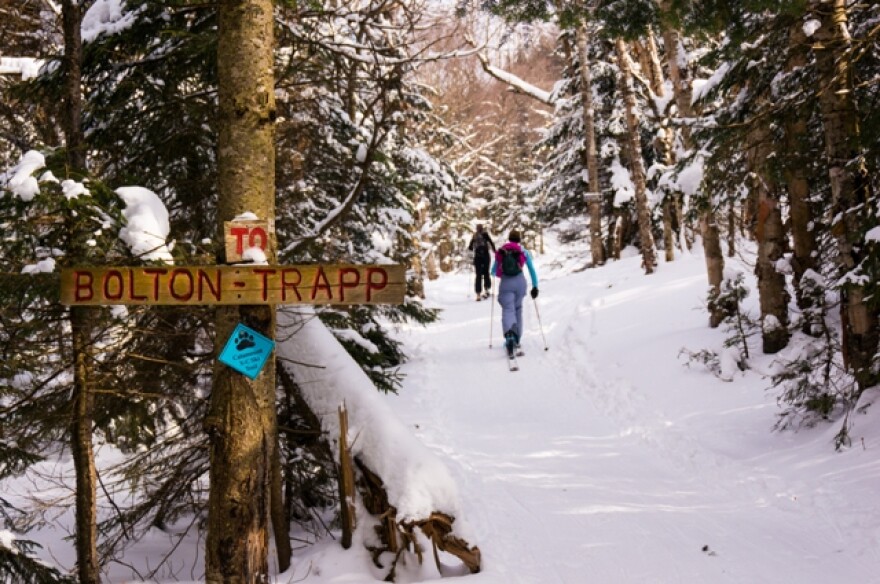Recreation businesses involving activities such as skiing, hiking, mountain biking and boating bring a lot of money into Vermont. But until now there hasn't been an organized effort to bring all of those businesses together and possibly provide some organized state support.In June, Governor Phil Scott put that ball in motion by signing an executive order that established the Vermont Outdoor Recreation Economic Collaborative, and the group met recently for the first time in Grafton.
Scott kicked off the two-day meeting in Grafton by acknowledging that there is already a lot of strong outdoor recreational businesses across the state.
From multi-million dollar ski resorts to single, independently owned bike shops, Scott said about 34,000 people make a living off the outdoor economy. And he says by bringing all of those businesses together, and better organizing state government support, there's an opportunity to drive economic development throughout the state.
"I'm hoping that this will promote the outdoor industry and help grow our economy," Scott said. "This executive action will provide an opportunity to review our laws, policies and initiatives, to encourage the growth and expansion of our outdoor initiatives and recreational businesses."
There were about 50 people at the first meeting of the Vermont Outdoor Recreation Economic Collaborative. They included independent retailers and nonprofit groups that promote hiking, mountain biking and snowmobiling. Representatives from the departments of health, transportation, tourism and forest parks and recreation mingled with iconic Vermont manufacturers from Burton and Ibex.
The idea behind this first meeting was to lay the groundwork for a long-term strategy that supports every recreational business and nonprofit.

Vermont ATV Sportsmen's Association director Danny Hale says there are people all over the state who are tied to the outdoor recreation industry.
"I hope it leads to a better understanding how we can all benefit from the recreation economy," Hale says.
ATV users have occasionally bumped heads with hiking groups that complain about the noise and trail impact of the motorized vehicles. But Hale says everyone needs to have a seat at the table as the state tries to grow the recreation economy.
"We're in a state where there are a lot of different uses, and all the uses need to be utilized for the benefits they have," says Hale. "It's a hard place to make a living in Vermont, so if we can help ... bring new businesses here and provide places for people to do things, we need to do that. Because that's going to be the future."
"Let's face it, we've got to make sure we get it right with regard to the intended impacts of this use. ... We want to make sure it's intentional, and we keep it going for all of its benefits." - Michael Snyder, Commissioner Forests, Parks and Recreation
Vermont Forests, Parks and Recreation commissioner Michael Snyder says there's already ongoing collaboration with hiking clubs, snowmobile associations and mountain bike groups that use state lands. But Snyder says there's never been an effort to have state natural resource officials and the tourism and marketing departments sit down with for-profit businesses and nonprofit groups to make sure Vermont's natural assets are protected for the long haul.

"Let's face it, we've got to make sure we get it right with regard to the intended impacts of this use," Snyder says, "whether it's traffic in small towns, parking, or how to handle people and their needs out there on the land. So we want to make sure it's intentional, and we keep it going for all of its benefits."
Snyder says he also wants to make sure outdoors industry manufacturing jobs stay here, and that companies like Ibex and Burton stay in Vermont.
And when that's successful, he says young families will move to the state to work in those companies and in turn enjoy all that Vermont offers.
"One of our brightest options for the future is to maintain this beautiful landscape," he says. "And we can do that by working carefully and closely with it and supporting those cultures and industries so that they can continue. Then we can build on the opportunities from there with healthy outdoor activities that support other healthy, thriving businesses. I think we have a really bright future and it's worth paying attention to try and get us there."
Snyder says he hopes the group can start by building a statewide list of all the groups and businesses that take part in the outdoor economy, then maybe develop a single online portal for tourists and Vermonters.
He was reluctant to make too many predictions about the long term outcomes of the outdoor recreation economic collaborative. Snyder says he does expect some kind of legislation to be introduced in the next year or two, and there might be a request for state funding to support the work.





